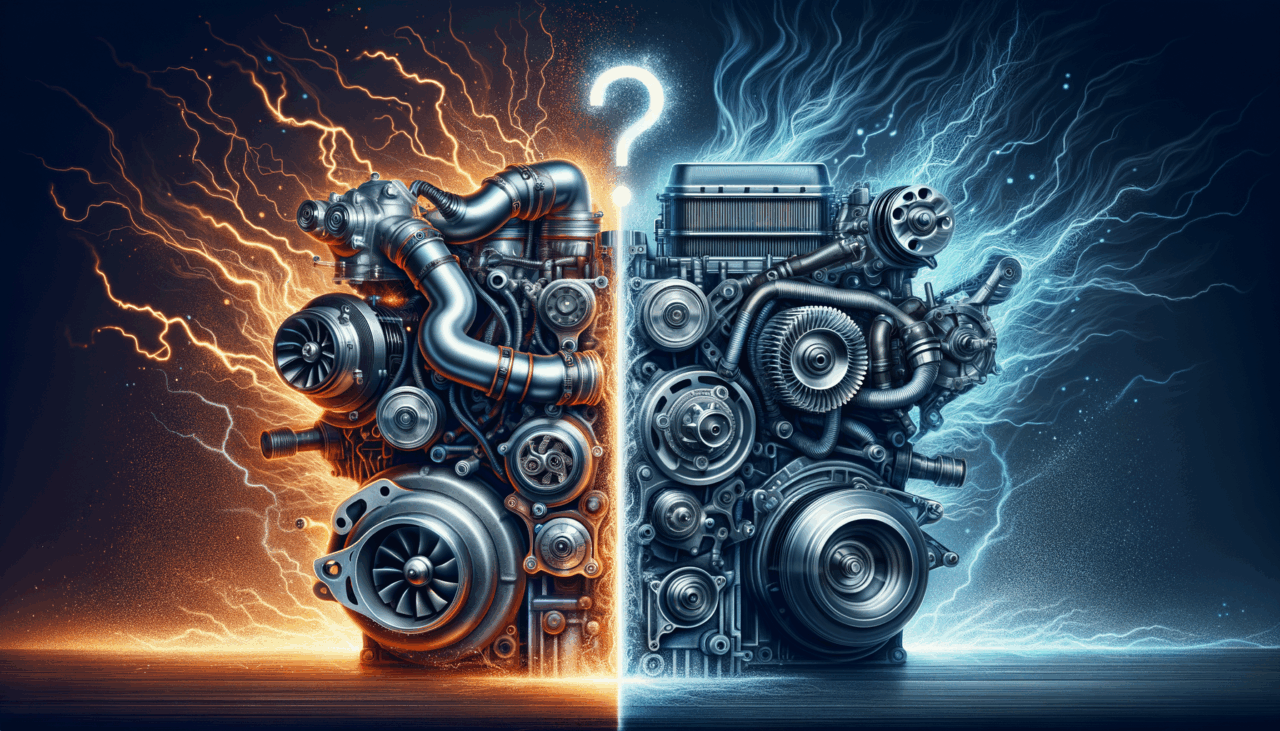In the ever-evolving world of automotive technology, the debate between turbocharged and naturally aspirated engines remains a hot topic. Each engine type brings its unique blend of power, efficiency, and reliability to the table, much like choosing between a high-octane espresso shot and a consistently brewed cup of coffee. Both have their merits, but which one suits your driving style? Let’s delve into the world of engines and explore their characteristics in detail.
Understanding the Basics
Before we dive into the core comparison, it’s essential to understand what sets these two engine types apart.
Turbocharged Engines
Imagine a turbocharged engine as a sprinter with a sudden burst of energy. This type of engine uses a turbocharger, a device that forces more air into the combustion chamber. This process effectively increases the engine’s power output without significantly increasing its size. Here’s a breakdown of its key characteristics:
- Power Boost: Turbocharged engines are designed for power. They deliver impressive horsepower and torque, making them ideal for performance-oriented vehicles.
- Fuel Efficiency: Despite the power surge, these engines can offer better fuel efficiency by enabling smaller engine sizes that consume less fuel at cruising speeds.
- Lag and Complexity: Turbo lag, a delay in power delivery, can be a downside. Additionally, the added components and complexity may lead to increased maintenance costs.
Naturally Aspirated Engines
Think of a naturally aspirated engine as a marathon runner—steady, reliable, and consistent. These engines rely on atmospheric pressure to draw air into the combustion chamber, resulting in a straightforward and robust design. Here’s a closer look at their traits:
- Simplicity and Reliability: With fewer components, naturally aspirated engines tend to be more reliable and easier to maintain over time.
- Linear Power Delivery: Power is delivered smoothly across the rev range, offering a predictable and consistent driving experience.
- Fuel Consumption: Typically, these engines are less fuel-efficient at higher speeds compared to their turbocharged counterparts.
Comparative Table: Turbocharged vs. Naturally Aspirated Engines
To provide a clear and concise comparison, let’s examine the key differences between these two engine types in the following table:
| Feature | Turbocharged Engine | Naturally Aspirated Engine |
|---|---|---|
| Power Output | High, with significant horsepower and torque | Moderate, with linear power delivery |
| Fuel Efficiency | Generally more efficient at cruising speeds | Less efficient at higher speeds |
| Maintenance | Potentially higher, due to additional components | Lower, with simpler design |
| Driving Experience | Offers rapid acceleration and sporty feel | Provides smooth and predictable power delivery |
| Engine Complexity | Complex, with turbocharger and additional plumbing | Simple, with fewer parts and less potential for failure |
| Turbo Lag | Present, can cause delay in power delivery | Not applicable |
Making the Right Choice
Choosing between a turbocharged and naturally aspirated engine ultimately depends on your driving preferences and priorities. If you’re seeking exhilarating power and are willing to manage the complexity, a turbocharged engine might be your perfect match. However, if you value reliability and a straightforward driving experience, a naturally aspirated engine could be the ideal choice.
Much like choosing between a thrilling roller coaster ride and a scenic drive through the countryside, both engine types offer unique experiences that cater to different tastes. Whichever path you choose, understanding the nuances of each engine type ensures that your choice aligns with your driving aspirations.
Conclusion
In the grand tapestry of automotive engineering, turbocharged and naturally aspirated engines each weave their distinct narrative. By weighing their characteristics, you can make an informed decision that complements your driving style. So, whether you’re a speed enthusiast or a fan of reliability, understanding these engines will guide you to the perfect fit for your vehicle.
By blending analytical insights with relatable analogies, this exploration of turbocharged versus naturally aspirated engines aims to illuminate the complexities of automotive choices. With this knowledge at your fingertips, you’re well-equipped to navigate the engine debate and make a choice that resonates with your driving passion.

Comments (0)
There are no comments here yet, you can be the first!